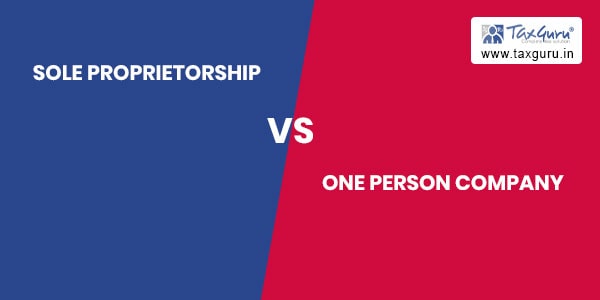SOLE PROPRIETORSHIP:
The proprietorship is a popular business form due to its simplicity, ease of setup, and nominal cost. You could have one up and running within 15 days, which makes it very popular among the unorganised sector, especially in small traders and merchants. A sole proprietor need only register his or her name and secure local licenses, and the proprietor is ready for business.
A proprietorship is considered as one of the easiest types of businesses to start. If you choose to start out on his own as a proprietorship, you can expect challenges. You need to be familiar with the negative and positive reasons for being a proprietorship before using that business format to start your company.
FEATURES, PROS AND CONS OF SOLE PROPRIETORSHIP:
To register a Sole Proprietorship, there should be a Sole Proprietor who should attain the age of majority.
A sole proprietorship may operate under its sole proprietor name or it may conduct business under a fictitious name, such as Radhika’s Couture. The fictitious name is simply a trade name–it does not create a legal entity separate from the proprietor owner.
Any name can be used for sole proprietorship. But certain words or names are forbidden or not authorised by the Emblems and Names (Prevention and Improper Use) Act, 1950, once it must be kept in mind. In addition, you cannot use the already registered trademark name.
All decision making powers will be owned by sole proprietors only and it is not a separate legal entity as other businesses. A proprietor neither needs to report someone nor take orders from anyone else. There is no interference from a third party.
A sole proprietorship is one of the easy to form businesses where there is no any legal formality followed unlike a corporate firm; there are minimal compliance or disclosure requirements during the whole financial year. Hence, Government interference is also very less. The rates of tax are lower compared to other business structures like company and partnership. The benefit of deductions is an added advantage with combined Income tax return for individuals and the business.
The proprietor is the only owner of the business and therefore he owns the whole share of the business profit. Also, the business assets are treated as assets of the proprietor and vice-versa. He can decide when to withdraw profit or to reserve.
It is a kind of business entity that’s owned and operated by one individual person with unlimited liability and sole bearer of all risks in the business. So, if a proprietor business runs into financial trouble, creditors can bring lawsuits against the business owner. If such suits are successful, the owner will have to pay the business debts with his or her own money.
It’s relatively difficult to get financing or a loan, because the banks and all the other lenders are hesitant to invest in that type of business.
SOLE PROPRIETORSHIP REGISTRATION:
There is no specific government department prescribed for registration of a Sole Proprietorship Business. But based on the nature of business and turnover levels, it may be registered in the following departments.
1. Shops and Establishment Registration or License (Gumasta)
2. Udyam Registration (MSME)
3. Goods and service tax registration (GST)
4. Open Bank Account
5. Trademark Registration (You can opt for this registration in case you want to protect your trade name.)
6. FSSAI Registration or License (You can opt for this Registration in Case you are engaged in a Food and food Related business.)
7. Import and Export Code (You can opt for this registration in case you are engaged in an Import or Export.)
8. Application for allotment of TAN (Tax Deduction Account Number or Tax Collection Account Number)
9. You need to comply with annual compliance as per the Income tax act & rules and regulations made there under.
WHO SHALL REGISTER A SOLE PROPRIETORSHIP FIRM?
Those looking for traditional small enterprises can register a sole proprietorship.
Therefore, a sole proprietorship is preferred for small businesses that are not seeking debt or financing. If you are not planning to scale your business up a lot, this could still be a good choice for you to start a business. You may subsequently register your company as an one person company.
ONE PERSON COMPANY:
One person company is an improved and better form of a sole proprietorship firm. One person companies are a great business organization structure for medium-sized businesses.
One person company needs to be registered under companies act, 2013 and rules and regulations made there under. An individual who does not have the co-founder to start his business venture can incorporate a One Person Private Limited Company and will enjoy the same benefits of a normal Private Limited Company.
If you choose to start out on your own as a one person company, you can expect challenges. You need to be familiar with the negative and positive reasons for being a one person company before using that business format to start your company.

FEATURES, PROS AND CONS OF ONE PERSON COMPANY:
A One Person Company would obtain the status of a separate legal entity as per the companies act, 2013. Such one person company registration ensures that the entity is separate from the owner, unlike a proprietorship firm. Protection of the company’s personal assets assures that the owner has limited liability to the extent of his/her own share. Even in the case of liquidation, the personal assets of the member are protected, except in certain specified cases.
The one person company gives the company a structure similar to a private limited company and hence makes it organized with the benefit of limited liability. A proprietorship does not provide an organized structure.
There is no requirement to wait for anyone’s approval as there is only one person who is the single authority to make decisions.
Large organizations prefer to deal with one person company instead of proprietorship firms. One person company is registered just like a private company and private companies are the trusted form of business which makes it easy for them to get funding from the financial institutions. It gives suppliers and customers a sense of confidence in the business.
One person company may also appoint a distinct individual as director for its management. One Person Company feature is such that it has only one shareholder who owns 100% stake of the company. However, in One Person Company, the shareholder holds complete control over being a stakeholder. To maintain the character of perpetuity, the appointment of a nominee is mandatory in case of one person company.
There are minimal compliance or disclosure requirements during the whole financial year as compared to other private limited companies.
One person cannot incorporate more than 1 one person company or become a nominee in more than 1 one person company. No minor shall become a member or nominee of the One Person Company or hold shares with beneficial interest.
One person company can’t carry out Non-Banking Financial Investment: including investment in securities of anybody corporate.
No Perpetual Succession: Since there is only one member in an one person company, his death will result in the nominee choosing or rejecting to become its sole member.
ONE PERSON COMPANY REGISTRATION:
There is specific procedure prescribed for registration of a One Person Company under companies act, 2013 and rules and regulations made there under. However, based on the nature of business and turnover levels, it may be also registered in the following departments.
You need to register your business as one person company under companies act, 2013 and rules and regulations made there under.
1. Application for Bank account
2. Apply for MSME/GST if required
3. Trademark Registration (You can opt for this registration in case you want to protect your trade name.)
4. FSSAI Registration or License (You can opt for this Registration in Case you are engaged in a Food and food related business.)
5. Import and Export Code (You can opt for this registration in case you are engaged in an Import or Export.)
6. You need to comply with one person company annual compliance as per companies act, 2013 and rules and regulations made there under and Income tax act & rules and regulations made there under.
WHO SHALL REGISTER A ONE PERSON COMPANY?
An Individual with an innovative business idea who is looking for venture capital funding, external investment, long term expansion and growth and an individual who wants to enjoy the limited liability can register a one person company.
One person company is an improved and better form of a sole proprietorship firm and thus conversion of proprietorship into one Person Company is a good business decision.
An individual who wants to check his business idea may start an one person company and once the project is feasible, he can approach the Venture Capitalists and get the stake into equity share capital and transforming into a normal Private Limited Company.
DISCLAIMER:
This article is based on the relevant provisions and to the best of my knowledge at the time of preparation of this article and moreover in no event author shall be liable for any direct and indirect result from this article and this is only a knowledge sharing initiative provided solely for information, this article is not a professional advice or recommendation.
AUTHOR:
CS JINAL SHAH, JINAL SHAH & CO. Company Secretary in Practice from Surat, Gujarat and for any query fell free to contact me on 9173610133 or jinalshahco@gmail.com.






What is the benefit of Doing business under sole proprietor ship firm in stead of doing business in the name of Individual?
Proprietorship is the business run by a natural person, there is no legal difference between the promoter and the business. The promoter himself receives all the profits. A Sole Proprietorship firm does not require any formal registration. However, if you do its own business as a sole proprietorship then you can create a market image with your own business name. Also, it will be beneficial for you when you want to sell your business or convert your business into other business forms. If your business requires a specific license like Udyam Aadhaar, you must work as a proprietorship instead of an individual.
Thus, it completely depends on your business types and future planning.
what is the benefit of Doing business under sole proprietor ship firm in stead of doing business in the name of Individual?
Madam, I can’t explain all things over here without the details of your business & its future planning. For more details, kindly contact me at 9173610133 between 12 pm to 6 pm. Also note that there are no charges applicable for resolving your queries.